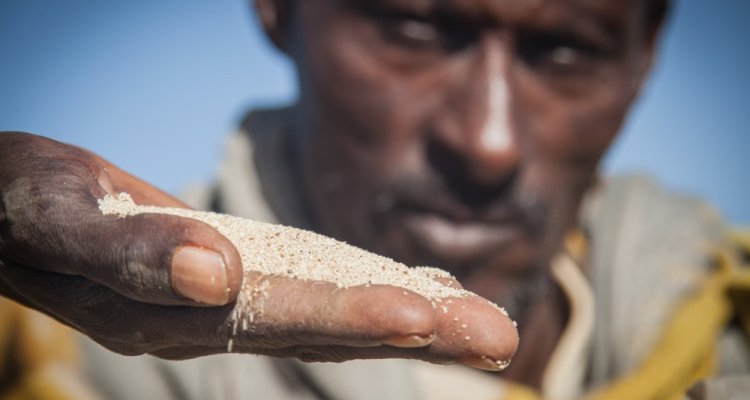
Impact story
Better seeds for more food in Africa
Quality seed, higher yields and better living conditions. Wageningen scientists work with local farmers, businesses, NGOs, governments and research institutes towards structural improvements in the African seed sector, which prompts a stream of positive changes.
Farmers in African nations are often sold bad or ‘fake’ seed. This is one of the reasons their yields are lower than they could be. Low-quality seeds or plant varieties are responsible for at least 50% of lower yields, resulting in tens of millions of euros in losses.
Several fronts
Wageningen University & Research collaborates with businesses, NGOs, governments, research institutes and farming organisations to structurally improve the seed sector. This challenge calls for a multifaceted approach, ranging from educating farmers to quality controls and governance and better coordination between the seed breeders and farmers in the chain. How, for example, could one formulate a proper future perspective for the sector? How can a supply of varieties and crops be created that are drought resistant and resilient against diseases, plagues and climate change? And how are fair market prices reached?
Through the national Integrated Seed Sector Development (ISSD)-projects in Ethiopia and Uganda, the partners work towards an international collaboration between twelve sub-Saharan nations. Thanks to their efforts in Ethiopia, no less than four million households were able to acquire quality seeds. By testing 343 varieties of twenty crops among fifteen thousand farmers – half of which are women – many households have gained access to varieties better adapted to the changing climate.
Impact evaluations show that the farmers’ living conditions are significantly improved when they use quality seeds. The extra income thus generated allows them to build better homes or pay for their children’s schooling. Want to learn more about how WUR can play a key part in collaboration for societal impact? Contact us!